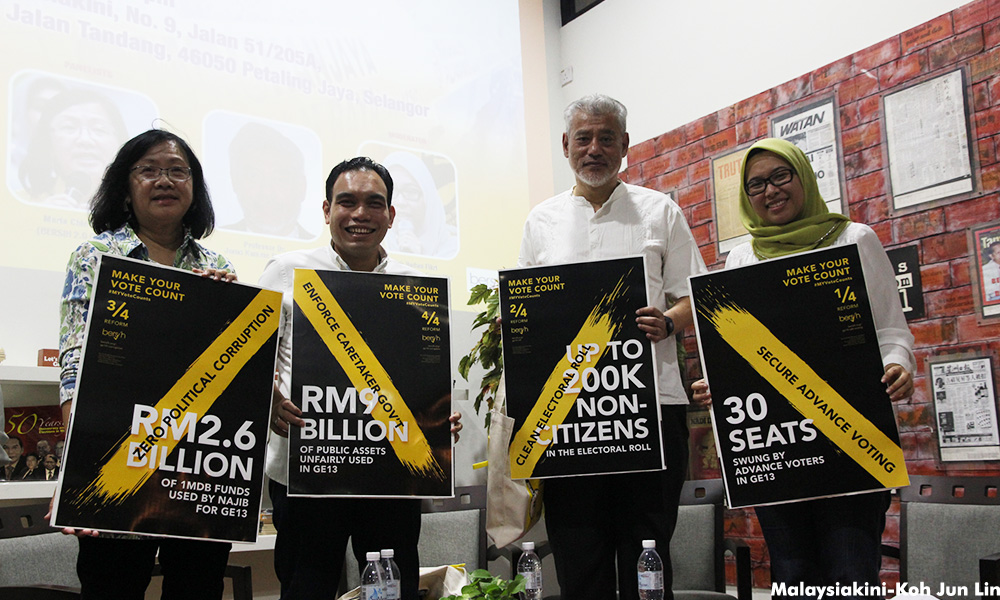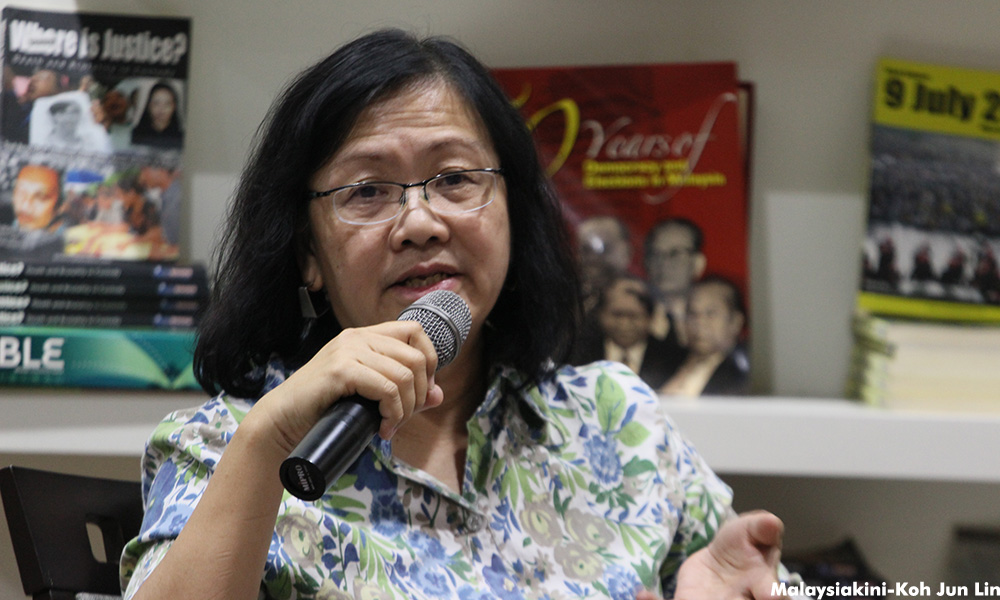
There is still a glimmer of hope to challenge the electoral roll, despite a section in law which prevents it, said lawyer Syahredzan Johan last night.
Speaking at the “Electoral Reforms Before GE14”, forum organised by the Bersih steering committee at Malaysiakini’s office, Syahredzan was referring to Section 9A of the Elections Act 1958, which prevents the courts from scrutinising the electoral roll once it has been gazetted.
The act was introduced by former prime minister Dr Mahathir Mohamad, following the Kota Kinabalu Election Court's verdict in 2001 to nullify the 1999 Likas by-election win by BN, over irregularities in the electoral roll.
Since then, there has not been a successful election petition, and even voters who claim to have been fraudulently added to the electoral roll could not seek relief from the courts.
Sixteen years on, Syahredzan claims the hope to challenge the electoral roll despite Section 9A, comes from a Federal Court decision that had nothing to do with elections.
He cited an April 20 decision in the Semenyih Jaya Sdn Bhd v Pentadbir Tanah Daerah Hulu Langat case, which held that only judges can decide on compensation in disputes on land acquisition, and it is not bound by the opinions of the two assessors it appoints.
“The case of Semenyih Jaya is basically a case where the Federal Court said judicial power of the federation lies with the judiciary. This is despite the fact that Article 121(1) (of the Federal Constitution) has been amended in 1988 to say that the High Court only has jurisdiction only in so far a federal law provides.
“So what this means is that, for example, if there is an act of Parliament that says that the courts cannot challenge this particular provision, then the courts would be helpless – meaning that the jurisdiction of the courts will be ousted. For the longest time, the courts actually agreed […]
“But now with the Semenyih Jaya case, it may mean that these sort of ouster clauses can now be challenged despite the fact that there is a provision to say that the jurisdiction of the court cannot be questioned,” he said.
He said such ouster clauses are present in laws regarding the electoral process, including Section 9A, and the recent judgement may mean that courts would be willing to look into cases despite the presence of the ouster clauses.
Hence, he said it is worth relooking into Section 9A to study the possibility of mounting a fresh legal challenge against the provision.
Also on the panel were Bersih chairperson Maria Chin Abdullah and economist Jomo Kwame Sundaram.
At the forum, Maria urged the Malaysian Anti-Corruption Commission (MACC) to be given official status as election observers to help combat graft.
She said following the Bersih People’s Tribunal, Bersih had compiled evidence of vote-buying in the 13th general election, into a booklet and presented it to the MACC, only for the MACC to claim that this was not their jurisdiction and referred Bersih to the Election Commission (EC). The EC then claimed the same and referred Bersih back to the MACC.
 “If you have noticed in Bersih 4 and 5, we have changed our demands to expand and say that other institutions that have some relationship with the kind of issues that are coming out during elections, have to also take the responsibility,” she said, referring to the police, the MACC, among others.
“If you have noticed in Bersih 4 and 5, we have changed our demands to expand and say that other institutions that have some relationship with the kind of issues that are coming out during elections, have to also take the responsibility,” she said, referring to the police, the MACC, among others.
Syahredzan added that there should be guidelines, or better yet, legislation, governing the conduct of caretaker governments.
He said caretaker governments should operate at a bare minimum because they do not have the people’s mandate, and should not be abusing government machinery to sway elections, or making announcements of new projects.
Meanwhile, to a question, Jomo and Syahredzan said rural and Malay voters should not be assumed to be ignorant or apathetic about corruption or electoral issues, even though they may have different priorities compared to urban voters.
Jomo, who had been speaking on Felda Global Ventures Bhd (FGV) and its losses, pointed out that few people attended the forum even though elections could be months away.
On the flip side, Mahathir who now heads the opposition party Parti Pribumi Bersatu Malaysia could pull crowds of at least 5,000-strong in rural areas if there is a Felda settlement nearby.
Syahredzan added that Malay voters are now ready to shift their political support, but only to find no one to turn to.
“The Malay ground is shifting. It is ready to shift but the problem is: Shift where?
“Our opposition has not presented itself as a viable alternative government, so they are ready to shift but there is no viable alternative to shift to,” he said.- Mkini


No comments:
Post a Comment
Note: Only a member of this blog may post a comment.